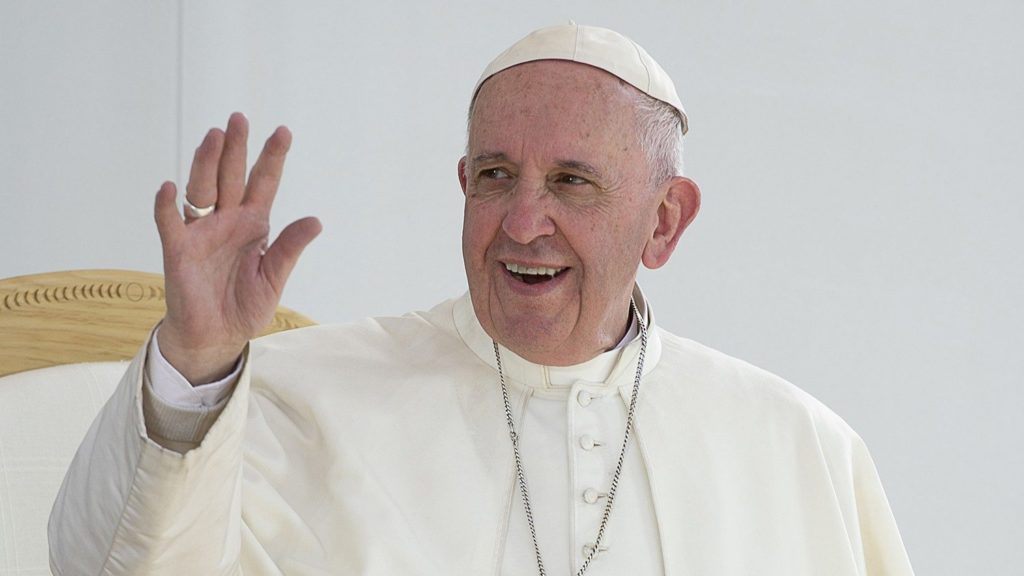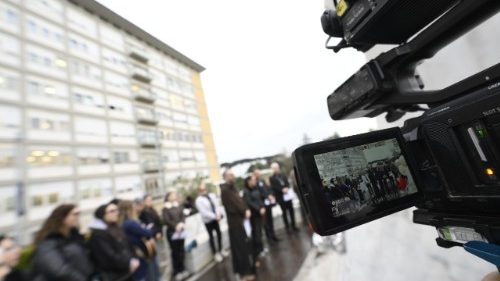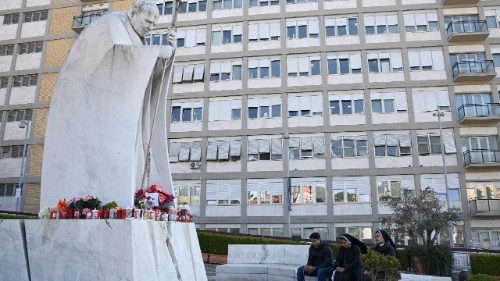Pope Francis: Democracy is solving everyone’s problems “together”
On the occasion of the Pope's visit to Trieste tomorrow, for the closing of the 50th Social Week of Catholics in Italy, the newspaper "Il Piccolo" publishes an unpublished text by Francis

It is an introduction to an anthology of his speeches and messages entitled: “In the heart of democracy.” The volume, published by Bookstore Editrice Vaticana and the newspaper “Il Piccolo”, is distributed free of charge on Sundays as a supplement to the newspaper.
I am pleased to use these words to introduce the text that the newspaper Il Piccolo and the Bookstore Editrice Vaticana offer to their readers, coinciding with my visit to Trieste on the occasion of the Social Weeks.
My presence in Trieste, a city with a strong Central European flavor due to its coexistence of different cultures, religions and ethnicities, coincides with the event that the Italian Episcopal Conference organizes in this city, the Social Weeks of Catholics in Italy, dedicated this year to the theme “At the heart of democracy. Participate between history and the future.”
Democracy, as we will know, is a term that originated in Ancient Greece to indicate the power exercised by the people through their representatives. A form of government that, although it has spread globally in recent decades, seems to be suffering the consequences of a dangerous disease, that of “democratic skepticism.”
The difficulty of democracies in assuming the complexities of the present time – think of the problems linked to the lack of work or the overwhelming power of the technocratic paradigm – sometimes seems to give in to the charm of populism. Democracy has a great and undoubted value inherent: that of being “together”, that the exercise of government takes place in the context of a community that confronts itself freely and secularly in the art of the common good, which is nothing but a different name from what we call politics.
“Together” is synonymous with “participation.” Father Lorenzo Milani and his boys already underlined it in the masterful Letter to a Teacher: “I have learned that the problem of others is the same as mine. Getting out of it together is politics, getting out of it alone is greed.” Yes, the problems we face belong to everyone and affect everyone.
The democratic way is to discuss them together and know that only together can these problems find a solution. Because in a community like the human one, one does not save oneself. The axiom of mors tua vita mea does not apply either. On the contrary. Even microbiology suggests that the human is structurally open to the dimension of otherness and the encounter with a “you” that is in front of us.
Giuseppe Toniolo himself, inspired and founder of the Social Weeks, was an economist who had understood very well the limits of homo oeconomicus, that is, of that anthropological vision based on “materialist utilitarianism”, as he called it, which atomizes the person, amputating the relational dimension.
Here I would like to say this, thinking today about what the “heart” of democracy means: together it is better because alone it is worse. Together is good because alone is sad. Together it means that one plus one is not two, but three, because participation and cooperation create what economists call added value, that is, that positive and almost concrete sense of solidarity that arises from sharing and raising, for example in the public sphere, issues on which there is convergence.
After all, it is in the word “participate” that we find the true meaning of what democracy is, of what it means to go to the heart of a democratic system. In a statist or management regime, no one participates, everyone observes, passive.
Democracy, on the other hand, requires participation, the demand to put in one’s own effort, to risk confrontation, to contribute one’s own ideals, one’s own reasons. Risk. But risk is the fertile soil in which freedom germinates. While balconying, staying at the window in front of what is happening around us, is not only not ethically acceptable, but, selfishly, it is not wise or convenient either.
There are so many social issues on which, democratically, we are called to interact: let’s think about an intelligent and creative reception, that cooperates and integrates, migrants, a phenomenon that Trieste knows well for being close to the so-called Balkan route; let’s think about the demographic winter, which now affects all of Italy, and some regions in particular; Let us think about choosing authentic policies for peace, which put the art of negotiation first and not the option of rearmament.
In short, this concern for others that Jesus continually points out to us in the Gospel as the authentic attitude in being people.
May a more convinced commitment to a fully democratic life emerge from Trieste, a city overlooking the Mediterranean Sea, a melting pot of different cultures, religions and peoples, a metaphor for that human fraternity to which we aspire in these times overshadowed by war participatory and oriented to the true common good.
Related

Pope Francis spent a peaceful night
Exaudi Staff
02 March, 2025
1 min

Pope Francis has had a peaceful night
Exaudi Staff
25 February, 2025
1 min

What should the boyfriend or girlfriend I should find be like?
Patricia Jiménez Ramírez
24 February, 2025
4 min

The Pope spent a quiet night at Gemelli
Exaudi Staff
23 February, 2025
1 min
 (EN)
(EN)
 (ES)
(ES)
 (IT)
(IT)

